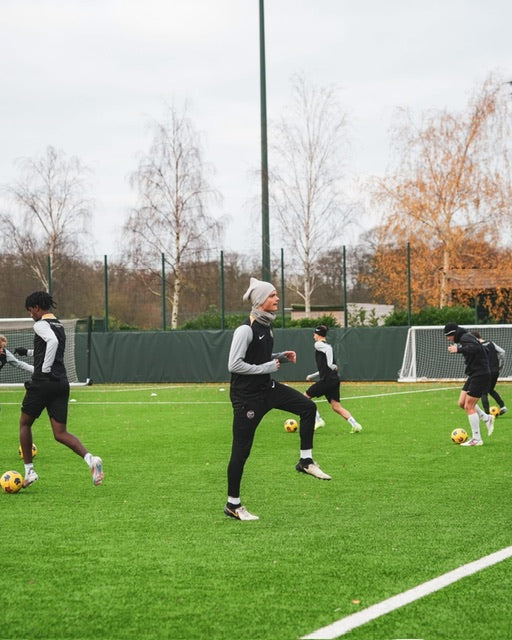Introduction
A move from Australia to the UK for boarding school or sixth form is a familiar route for many families. The two countries share language, legal frameworks, and strong ties between their education systems. While the travel time might be long, the process to get set up is reassuringly straightforward.
This guide walks through each key step: from applying for a student visa to choosing a UK-based guardian, registering for healthcare, opening a bank account, and preparing your child for their place in the British school system. Whether your child is heading into Year 9, GCSEs, or A-Levels, this is your practical checklist to ensure a smooth transition.
Visa Process – Simple and Familiar
Australian students travelling to the UK for full-time education will need a Child Student Visa, valid for ages 4 to 17 at an approved independent school.
To apply, you’ll need:
– A valid passport
– A CAS (Confirmation of Acceptance for Studies) from the school
– A signed parental consent letter
– Proof of funds to cover tuition and living expenses
– Payment of the visa fee (£524) and Immigration Health Surcharge (£776/year)
The application is completed online, followed by a biometric appointment at a UK Visa Application Centre in Australia (locations include Sydney, Melbourne, Brisbane and Perth).
After approval, your child receives a 90-day visa vignette, and once in the UK, they collect their Biometric Residence Permit (BRP) within 10 days. This card acts as their formal visa and UK ID.
Tip: Start the process 6–8 weeks before travel to avoid any last-minute delays.
Guardianship – Required for All Under-18s
Students under the age of 18 must have a UK-based guardian to support them outside of school hours and during term breaks.
Most families appoint a professional guardianship agency, often accredited by AEGIS, which provides:
– 24/7 emergency contact
– Host family stays during half terms and exeats
– Airport transfers and travel coordination
– Regular school and welfare updates for parents overseas
Guardianship confirmation is required by both the school and the visa application. Review your agency’s agreement carefully to understand what’s included and whether extras like holiday accommodation or travel bookings are charged separately.
Find Out More about UK School Holidays
Healthcare – NHS Access via the Student Visa
When you pay the Immigration Health Surcharge (IHS) as part of the visa application, your child becomes fully eligible for NHS services.
That includes:
– GP (doctor) appointments
– Emergency care
– Hospital visits and treatment
– Prescriptions
No extra insurance is required, although some families choose to add private health cover for shorter wait times or international travel protection. Many UK schools also have in-house nurses or onsite GPs.
Setting Up Banking – For Everyday Spending
A UK bank account is helpful for day-to-day purchases, allowances, and online spending. Once your child arrives and has their BRP and school address confirmation, they can open a youth account.
For 11–15-year-olds:
– NatWest Adapt and HSBC MyMoney are popular options and require a parent or guardian co-signatory.
For 16–17-year-olds:
– App-based options like Monzo 16–17 and Starling Teen allow easy setup with full spending visibility, budgeting tools, and no foreign transaction fees.
For international transfers:
– Use Wise or Revolut <18 to move money from AUD to GBP at competitive rates, avoiding SWIFT fees and delays. Funds often land in minutes, not days.
School System – Matching Year Groups and Curriculum
Most Australian families find the British school system familiar in structure but different in terminology. UK school placement is based on age as of 1st September. Here’s a rough comparison:
– Year 8 (Australia) ≈ Year 9 (UK)
– Year 9 ≈ Year 10 (start of GCSEs)
– Year 10 ≈ Year 11 (GCSE exams)
– Year 11 ≈ Year 12 (A-Levels or IB start)
Most UK boarding schools offer:
– GCSEs (Years 10–11)
– A-Levels or the IB Diploma (Years 12–13)
– University preparation, including UCAS support and global counselling
Be prepared to share:
– The last 2–3 years of school reports
– Reference letters (if requested)
– Visa documents and passport copies
– Entrance assessments or interviews (depending on the school)
Everyday Life – Tips for Settling In
Phones: UK eSIMs from giffgaff, EE or Vodafone offer affordable data and calling. Your child’s Australian phone will work—just check it’s unlocked.
Transport: Teens 16+ should get a 16–25 Railcard to save 1/3 on train fares. Travel apps like Trainline and Citymapper make navigation easy.
Weather: Pack layers and a proper waterproof coat—it’s colder and wetter than most Australian cities, especially in winter.
Groceries: Supermarkets like Tesco and Sainsbury’s stock global brands. Aldi and Lidl are good for familiar Aussie staples.
Lifestyle: UK schools are well prepared for international students and offer strong pastoral support. Students from Australia often adjust quickly to the independence and structure of UK boarding life.
Conclusion
Relocating from Australia to the UK is a well-supported and highly achievable move. With shared language, familiar education structures, and clear visa steps, the process feels manageable from start to finish.
By tackling things in order visa, guardianship, healthcare, banking, and school placement you can arrive ready to focus on settling in and enjoying all the opportunities that a UK education brings.
Need help selecting the right school or managing the move? Prestige Football Schools Admissions Support is here to help at every stage explained.


